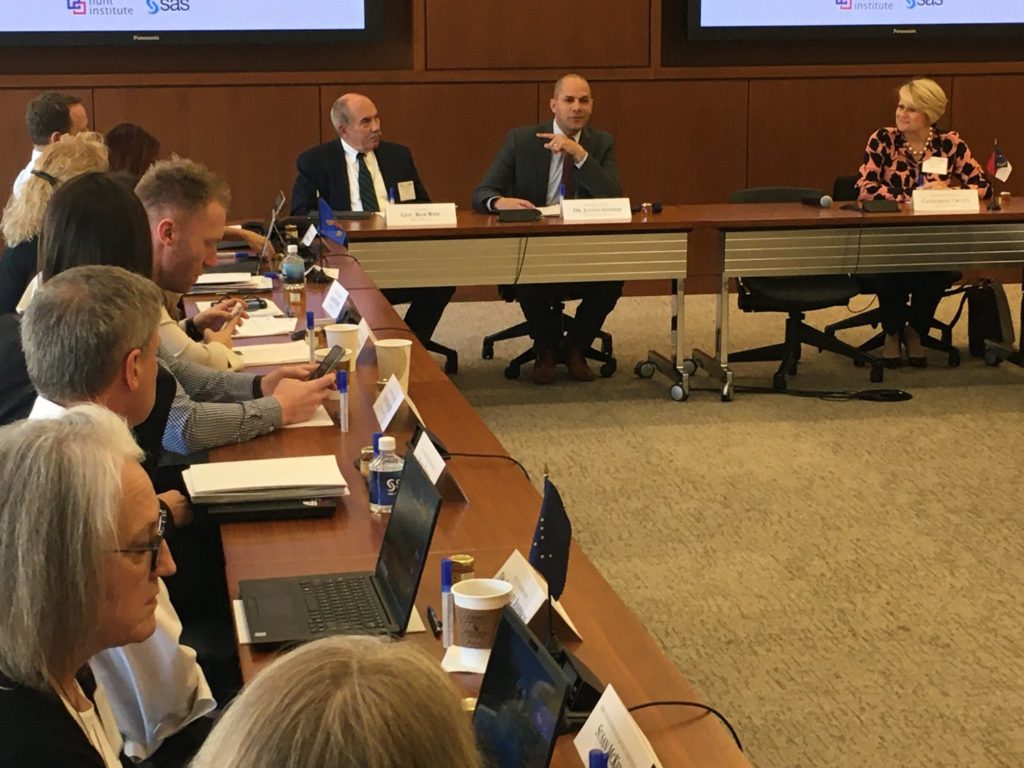

November 16, 2021

Nineteen months into the pandemic, we are beginning to understand more about unfinished learning. We know this phenomenon has impacted students of color, students with disabilities, English language learners, and students from low-income backgrounds at disproportionate rates. Rates of unfinished learning vary across the country and within districts and schools.
From November 15 – November 16, 2021, state school officers from across the country — and as far as Alaska — joined The Hunt Institute and SAS for two days of unfinished learning discussions. Resource experts explained strategies for building back stronger, such as learning acceleration and expanded learning opportunities, building diverse educator pipelines, reengaging missing students, and bridging the digital divide.
“This is a crucial conversation that education leaders are having,” said Dr. Javaid Siddiqi, president and CEO of The Hunt Institute. “Now is the once in a lifetime opportunity to act and implement bold changes,” he continued. “History will look back and ask what we did in these unprecedented times,” concluded Dr. Siddiqi as he highlighted the need to continue the work of the COVID Constituency.
In September, The Hunt Institute published The COVID Constituency | Emerging Priorities for Education Leaders, written by Dr. Siddiqi and Governor Bob Wise (WV). The newly-developed COVID Constituency is composed of concerned education leaders, teachers, parents, and students who hope to see bold changes brought to the education system.
Following the first day of discussions, Dr. Siddiqi moderated a special panel with Governor Wise and Celinda Lake, president of Lake Research Partners. Conversations gravitated toward answering a specific question asked in The COVID Constituency report: Given the tragedy of the pandemic, our nation’s common sacrifice, and record funding pouring into systems, how are policymakers going to make the education system better, stronger, and more equitable?